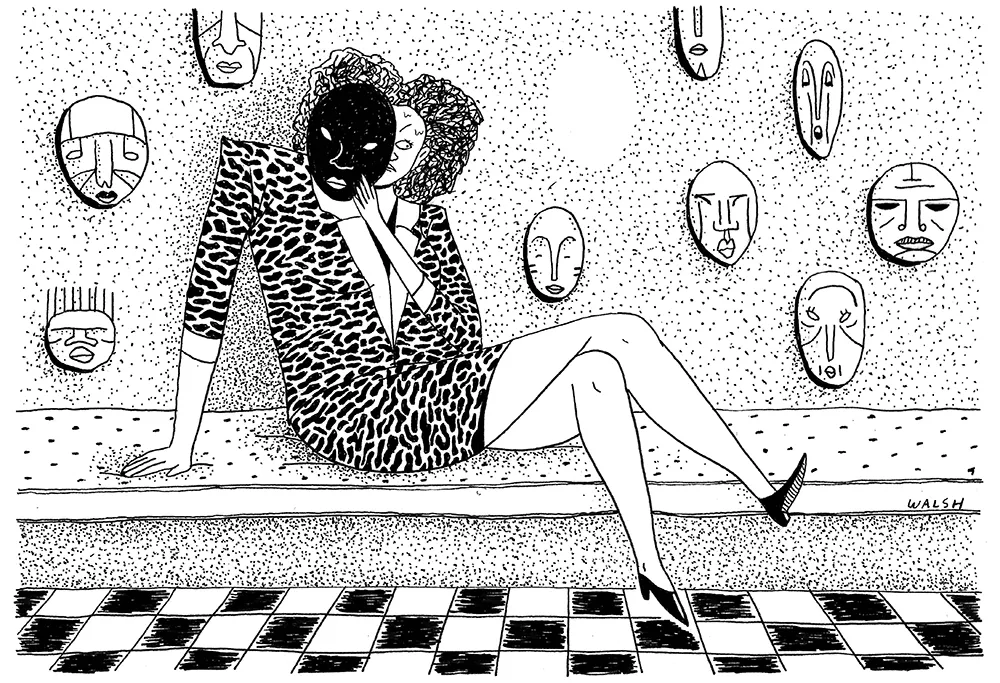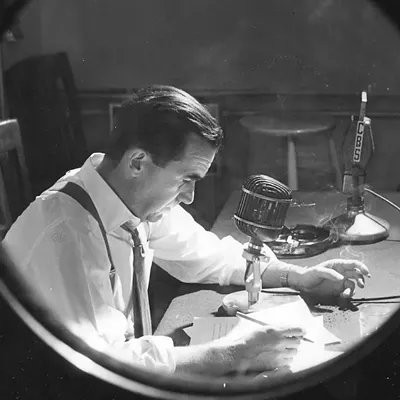I met Rachel Dolezal one year ago at the fabulous, first annual Bazaar art and craft festival in downtown Spokane. I was struck by the gravity of her work and the artist who was frustrated that her racially themed prints weren't selling to a predominantly white audience. Afterward, she announced a "fire sale" where her work was to be left on her porch and given away for donations; anything remaining at the end of the night would be burned. While dramatic, this was not the first time I had met an exasperated creative who was concerned about their economic future in my town. Since I want my community to be a welcoming and generous place, I drove by and slipped a small check through her door.
Like many, I am now left to look back on such interactions and wonder: was I manipulated, my kindness taken advantage of? And how should I operate differently, if at all?
To the first question: Yes, whether she acknowledges it or not, Dolezal misrepresented her race and appropriated black culture in a way that is offensive to many and was harmful wherever her pretenses enabled her to take positions from others who would have otherwise stepped forward to lead in her place. But as they have reminded us, people of color are incredibly strong, and this painful exposé in the life of one individual pales in comparison to the history of oppression that communities of color have survived and are continuing to overcome all over the world. Those who hope or worry that this scandal will somehow slow down the important work of the Spokane NAACP chapter clearly do not know who they are dealing with or fretting about.
To the second question, some have leapt to the false conclusion that this deception could only persist for so long in a place like Spokane where racism is rampant, white people feel guilty, scams abound and Northwesterners are nice. It's comforting for outsiders to shake their heads in denial, saying, "Oh no, that could never happen in my city!" But really, show me a town in America that isn't riddled with racism and white guilt and I'll show you Atlantis.
As for scamming, as we have just experienced: Simply because the media jumps on a string of juicy stories does not necessarily mean that reflects objective reality on the ground. And as someone who has tasted the many flavors of "Northwest nice," living in Portland, Seattle and Olympia, I can attest that Spokanites are much more likely to confront each other than the common culture in our coastal cousins would allow. While there is a bothersome strain of "Spokane nice" among professional circles, the kind of generosity and concern that Dolezal generally benefited from in our community is actually a strength to be proud of, not a weakness to root out.
Ultimately, only Dolezal can take responsibility for her actions. No amount of personal doubt or collective grief around false narratives of Spokane can absolve her of the need to provide the accountability our community deserves. ♦
Mariah McKay is a fourth-generation daughter of Spokane and a community organizer campaigning for racial, social and economic justice. She has worked in biotech and government and currently serves as a public health advocate.
















